Courses
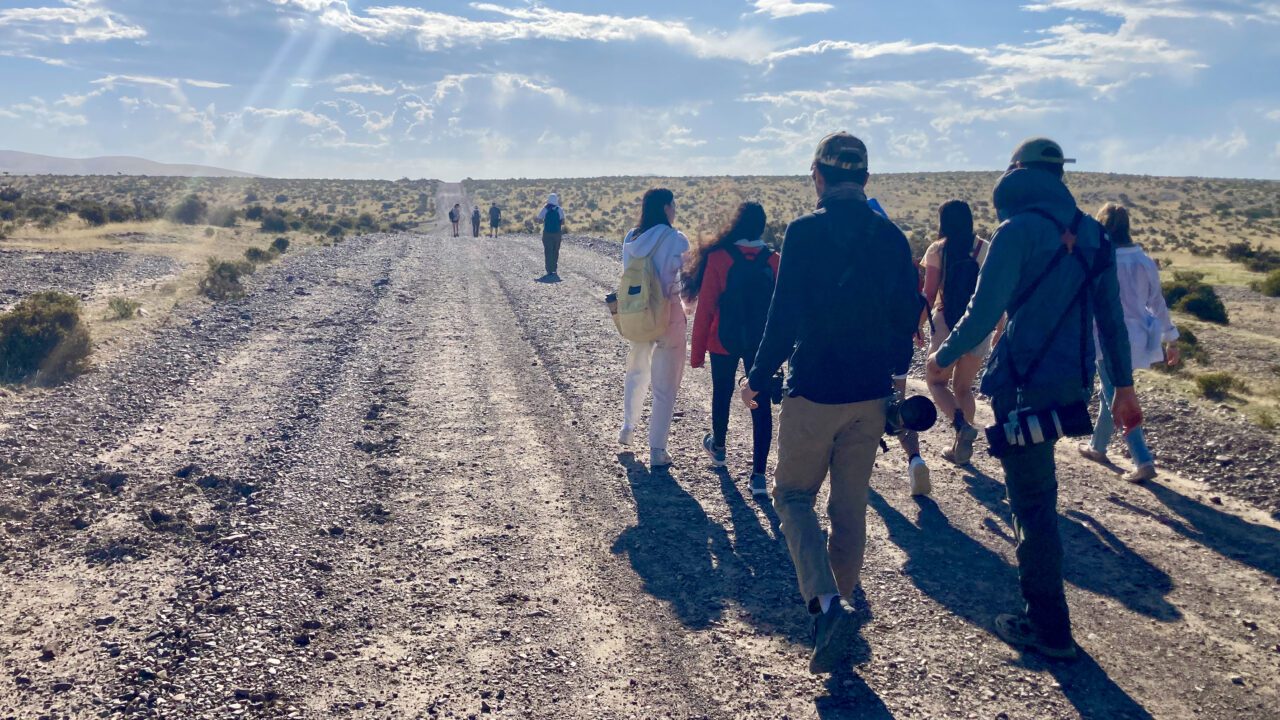
Cornell offers a wonderful spectrum of classes in ornithology, ranging from basic introduction to advanced study in specialized fields. Many are taught by Cornell Lab of Ornithology faculty or staff.
Courses taught by Lab or CUMV staff:
Ornithology Seminar (BIOEE/NTRES 7800)
Fall. 1 credit. Ornithology Seminar is for everyone with an interest in birds! Simultaneously a 1-credit class, a seminar series, and (most importantly) a gathering point that brings together 100+ undergraduates, grad students, postdocs, staff, and faculty who share an interest in avian biology. Each evening session features two informal-style talks from members of Cornell’s vast ornithological community, followed by the chance to chat with peers and colleagues over free pizza. Students should register for Bioee7800 if possible, but everyone is always welcome, registered or not, for just one session or for the entire semester. Organized by Lab staff: Irby Lovette.
Field Methods in Avian Ecology (NTRES/ENVS 2400)
Fall. 3 credits. Provides a hands-on introduction to methodologies used for studying wild birds including banding, census methods (point counts, transects, spot mapping), and behavioral observations. In a 50-minute classroom session each week, students discuss relevant scientific literature and prepare for the lab session. The weekly lab session is held at various field locations. Students seeking to conduct independent research in avian ecology are encouraged to enroll. Note that one weekend field trip is required. Co-led by Lab staff: David Bonter & Sara Kaiser.
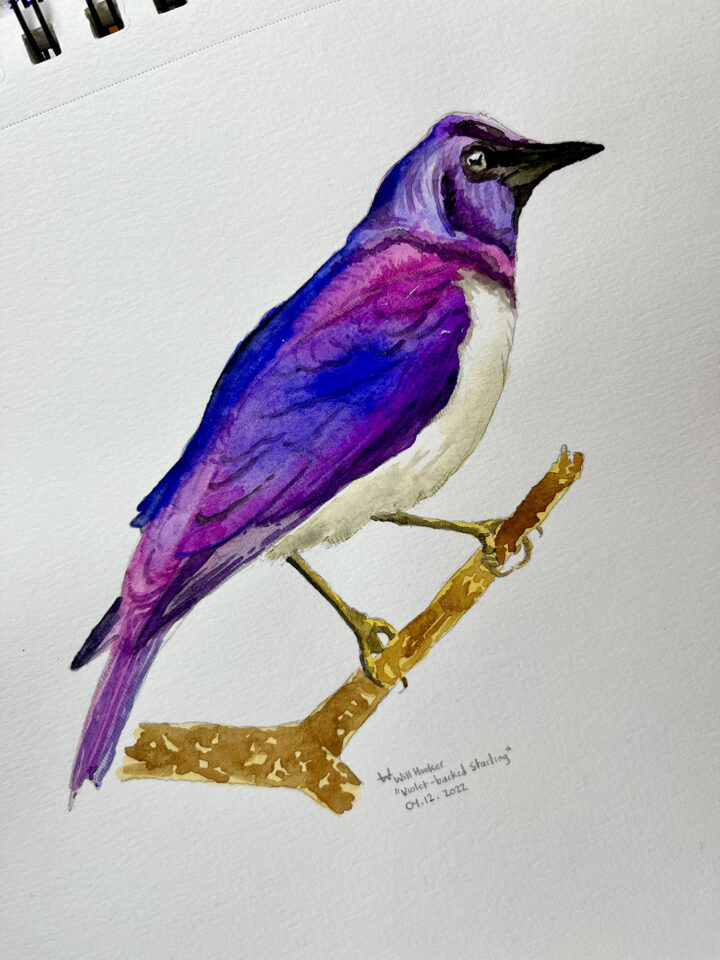
Art and Science of Birds: Biological Illustration for Understanding Nature (BIOEE 1130)
Spring. 2 credits. This course is an introduction to the practice of biological illustration through drawing and watercolor, with a focus on Ornithology. Appropriate for students with all levels of prior hands-on art experience, and for all levels of prior knowledge of birds and ornithology. Students will start with training in line drawing to build confidence, practice shading techniques to understand tone and value, and be introduced to the principles of perspective, composition, and color theory. Fun science themes are embedded throughout, to help show how art can inform science, and science inform art. Led by Lab staff: Jillian Ditner.
Advanced Ornithological Illustration (BIOEE 4940 LEC 004)
Fall (potentially moving to Spring). 2 credits. The focus of the course is the development and implementation of a semester-long project on the theme of bird identification. Each student is responsible for devising and creating their own bird identification field guide plate that compares differences between two species, or of distinct populations or plumages within a highly variable species of the student’s choice. This assignment is designed to emulate the workflow of a professional scientific illustrator, including project conceptualization, implementation, time management, critical review and incorporation of feedback, and ultimately the creation of a final product. Led by PhD Candidate Bryce Robinson.
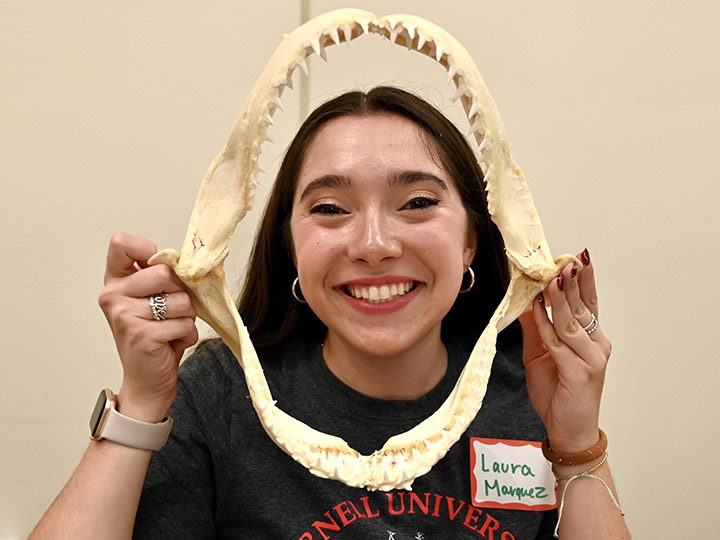
Techniques of Avian Specimen Preparation (BIOEE 1150)
Fall. 2 credits (pass/fail). This course has two main objectives: (i) to introduce students to the fine art of avian specimen preparation and (ii) to illustrate the diverse uses of natural history collections for research, teaching and conservation. Students will learn multiple specimen preparation techniques (skeletons, spread wings, and round skins) and be evaluated on the quality of their specimens and associated metadata. Students will also participate in an informal debate (among classmates) about the pros and cons of continued scientific collecting. Outcome 1: Practice avian specimen preparation. Outcome 2: Integrate examples of diverse uses of specimens to articulate the value of natural history collections. Led by CUMV staff Mary Margaret Ferraro & Vanya Rohwer.
Ornithology (BIOEE 4750)
Spring, even-numbered years. 3 credits. The flagship 3-credit ornithology course at the University that is synonymous with Avian Biology! Lectures and activities cover the full range of topics that make birds so special, including their evolution, ecology, anatomy, physiology, behavior, conservation, and more. Supplemented by our own textbook, the Cornell Lab of Ornithology Handbook of Bird Biology. Led by Lab staff Irby Lovette & Jen Walsh-Edmund.
Ornithology Lab (BIOEE 4751)
Spring, even-numbered years. 1 credit. This optional lab parallels and supplements the material covered in the Ornithology lecture class (BIOEE 4750). Students taking Ornithology Lab must also be taking BIOEE 4750. Offers experiential activities and exercises in both outdoor and indoor lab settings. Led by Lab staff.
Ornithology, Global Avian Diversity (BIOEE 4752)
Fall semesters of odd-numbered years. 2 credits. A very special 2-credit offering that takes advantage of the rich avian specimen holdings of the Cornell Museum of Vertebrates. Covers the full set of all living avian orders and families, including their incredible diversity of plumages, behaviors, and morphologies. Short lectures and online Birds of the World content are supplemented by the longer weekly lab sessions that feature physical specimens from the Cornell Museum of Vertebrates. Led by Lab staff Irby Lovette and Shawn Billerman, and CUMV staff Mary Margaret Ferraro.
Ecology and Conservation of Wildlife in the Neotropics (BIOEE 2525/2526/2527)
Fall, winter, spring. 4 credits. A field course held annually with a classroom component and a field trip in Patagonia during the winter break. Students learn experimental design, data collection, and statistical analysis within the context of fieldwork. Taught using an unusual ‘sandwich’ schedule where class meets for the second half of the Fall semester, travels to the field site during the Winter break in January, and reconvenes on campus for the first half of the Spring semester. View course website. Led by Lab staff Leonardo Campagna.
Introduction to Conservation Bioacoustics (NTRES 3150)
Fall. Although not restricted to birds, this course provides a strong foundation in the discipline of conservation bioacoustics, the use of sound to assess biodiversity, monitor animal populations, and make conservation decisions. Students will learn how sound is recorded and visualized, animal sound perception, hands-on instruction in recording equipment and techniques, sampling strategies, as well as analysis of bioacoustic data. This course is a mandatory pre-requisite for an optional marine and terrestrial field component that will take place in January in Hawaii with a connected 7 week spring course. Led by Lab staff Holger Klinck, Aaron Rice, and Laurel Symes.
Wildlife Population Analysis: Techniques and Models (NTRES 4120/6120)
Spring, alternate years. 3 credits. Explores the theory and application of statistical methods used in the conservation and management of wildlife and fish populations, including capture-mark-recapture and occupancy modeling as well as other cutting-edge methodologies. Individual modules will integrate hypothesis development, data analysis, and inference to reinforce concepts discussed throughout the course. Students will become fluent in the R programming language and be exposed to a wide variety of real-world applications. Led be Lab staff Courtney Davis.
Neurobiology and Behavior I: Introduction to Behavior (BIONB 2210)
Fall, summer. 3–4 credits. General introduction to the field of animal behavior. Topics include evolution and behavior, behavioral ecology, sociobiology, chemical ecology, communication, orientation and navigation, and hormonal mechanisms of behavior. Led by Lab staff Mike Webster.
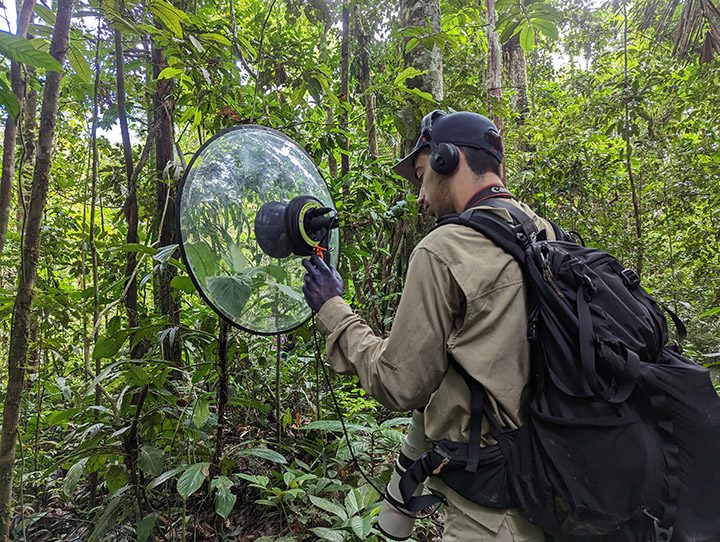
Animal Communication (BIONB 4260)
Spring, alternate years. 4 credits. Communication is the “glue” that holds societies together, and this course examines how and why animals communicate. Topics include the role of the environment in shaping animal signals, whether animals tell the truth to each other, why some bird songs are simple and others complex, and what kinds of signals might be exchanged between species. Led by Lab staff Mike Webster.
Undergraduate Research (e.g., BIOG 2990/4990, NTRES 2990/4990, and similar courses)
Opportunities for undergraduates to conduct independent research under the formal mentorship of Lab-based faculty and staff abound. These courses are self-designed, independent research experiences. Discuss the appropriate number of credits and deliverables with your research mentor. The independent research courses are available for many different majors, but the course numbers are always 2990 (first semester) and 4990 (subsequent semesters).
Other Cornell courses of potential interest:
Biology Seminar: mini-courses on birds (BIOG 1250)
Fall, spring. 1-2 credits. These special courses meet for half of a standard semester (usually seven times total) with the goal of creating an inspiring entry-point for students to engage with a new topic and get to know their professor in a small class setting. They have a reputation for being a lot of fun and not at all stressful, so they are a great way to learn something interesting while meeting new friends. They are designed for first-year students but open to all students. Ornithology-related BIOG 1250 courses are offered nearly every semester, but the topics vary (check out the website for forthcoming offerings).
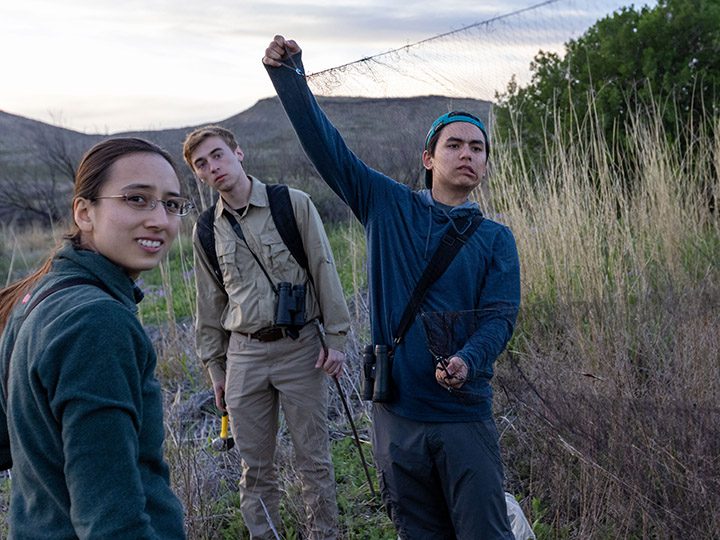
Introductory Field Biology (NTRES 2100)
Fall. 4 credits. Introduction to field identification, natural history, and study of plants, animals, and natural systems.
Introduction to Evolutionary Biology and Diversity (BIOEE 1780)
Fall, spring, summer. 4–5 credits. A core-curriculum Biology course frequently taught by Ornithology faculty.
Introductory Biology: Ecology and the Environment (BIOEE 1610)
Fall, spring, summer. 3–4 credits. A core-curriculum Biology course frequently taught by Lab faculty.
Shoals Marine Lab Courses
Shoals Marine Lab, a joint field station operated by Cornell and the University of New Hampshire, offers a suite of summer courses that may be of interest.
Outdoor Birding and Nature Observation (PE 1606)
Fall, Spring. 1 credit. Learn to identify and understand the behaviors of the birds in our area. This course is offered as a collaboration between Cornell Outdoor Education and the Lab.
